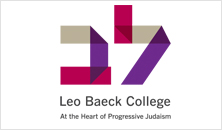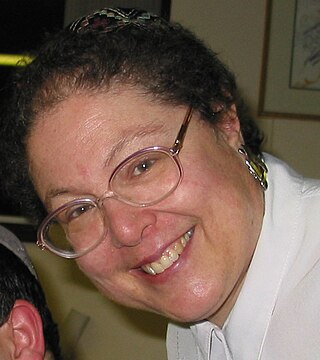
Judaism is an Abrahamic, monotheistic, and ethnic religion comprising the collective religious, cultural, and legal tradition and civilization of the Jewish people. It has its roots as an organized religion in the Middle East during the Bronze Age. Modern Judaism evolved from Yahwism, the religion of ancient Israel and Judah, by the late 6th century BCE, and is thus considered to be one of the oldest monotheistic religions. Judaism is considered by religious Jews to be the expression of the covenant that God established with the Israelites, their ancestors. It encompasses a wide body of texts, practices, theological positions, and forms of organization.
Liberal or liberalism may refer to:
Orthodox, Orthodoxy, or Orthodoxism may refer to:
Progressive may refer to:

Reform Judaism, also known as Liberal Judaism or Progressive Judaism, is a Jewish denomination that emphasizes the evolving nature of Judaism, the superiority of its ethical aspects to its ceremonial ones, and belief in a continuous search for truth and knowledge, which is closely intertwined with human reason and not limited to the theophany at Mount Sinai. A highly liberal strand of Judaism, it is characterized by lessened stress on ritual and personal observance, regarding halakha as non-binding and the individual Jew as autonomous, and great openness to external influences and progressive values. The fundamental difference is the approach to Torah and the implications of that approach. The Orthodox believe that it comes directly from God and so cannot be changed. Since its founding in Germany in the 1800s, Reform Judaism has adapted prayer liturgy into a more contemporary understanding of Judaism.
Liberal Judaism is one of the two WUPJ-affiliated denominations in the United Kingdom founded by Claude Montefiore. It is smaller and more radical in comparison with the other one, the Movement for Reform Judaism. It is considered ideologically closer to American Reform Judaism than it is to the British Reform movement. As of 2010 it was the fourth largest Jewish religious group in Britain, with 8.7% of synagogue-member households.
Jewish religious movements, sometimes called "denominations", include diverse groups within Judaism which have developed among Jews from ancient times. Today in the west, the most prominent divisions are between traditionalist Orthodox movements and modernist movements such as Reform Judaism originating in late 18th century Europe, Conservative originating in 19th century Europe, and smaller others.

Samuel Hirsch, was a major Reform Judaism philosopher and rabbi who mainly worked and resided in present-day Germany in his earlier years. He promoted the radical German Reform Judaism movement and published several works in the 1840s. He moved to the United States in 1866 where he would die in Chicago, Illinois in 1889.

Conversion to Judaism is the process by which non-Jews adopt the Jewish religion and become members of the Jewish ethnoreligious community. It thus resembles both conversion to other religions and naturalization. The procedure and requirements for conversion depend on the sponsoring denomination. Furthermore, a conversion done in accordance with one Jewish denomination is not a guarantee of recognition by another denomination. Normally, though not always, the conversions performed by more stringent denominations are recognized by less stringent ones, but not the other way around. A formal conversion is also sometimes undertaken by individuals whose Jewish ancestry is questioned or uncertain, even if they were raised Jewish, but may not actually be considered Jews according to traditional Jewish law.
"Who is a Jew?" is a basic question about Jewish identity and considerations of Jewish self-identification. The question pertains to ideas about Jewish personhood, which have cultural, ethnic, religious, political, genealogical, and personal dimensions. Orthodox Judaism and Conservative Judaism follow Jewish law (Halakha), deeming people to be Jewish if their mothers are Jewish or if they underwent a halakhic conversion. Reform Judaism and Reconstructionist Judaism accept both matrilineal and patrilineal descent as well as conversion. Karaite Judaism predominantly follows patrilineal descent as well as conversion.
Jewish atheism refers to the atheism of people who are ethnically and culturally Jewish. Contrary to popular belief, the term "Jewish atheism" is not a contradiction because Jewish identity encompasses not only religious components, but also ethnic and cultural ones. Jewish law's emphasis on descent through the mother means that even religiously conservative Orthodox Jewish authorities would accept an atheist born to a Jewish mother as fully Jewish.

Abraham Geiger was a German rabbi and scholar, considered the founding father of Reform Judaism. Emphasizing Judaism's constant development along history and universalist traits, Geiger sought to re-formulate received forms and design what he regarded as a religion compliant with modern times.

Reform Judaism is one of the two World Union for Progressive Judaism–affiliated denominations in the United Kingdom. Reform is relatively traditional in comparison with its smaller counterpart, Liberal Judaism, though it does not regard Jewish law as binding. As of 2010, it was the second-largest Jewish religious group in the United Kingdom, with 19.4% of synagogue-member households. On 17 April 2023, Reform Judaism and Liberal Judaism announced their intention to merge as one single unified progressive Jewish movement. The new movement, which may be called Progressive Judaism, will represent about 30% of British Jewry who are affiliated to synagogues.

The World Union for Progressive Judaism (WUPJ) is the international umbrella organization for the various branches of Reform, Liberal and Progressive Judaism, as well as the separate Reconstructionist Judaism. The WUPJ is based in 40 countries with 1,275 affiliated synagogues, of which 1,170 are Reform, Progressive, or Liberal and 105 Reconstructionist. It claims to represent a total of some 1.8 million people, both registered constituents and non-member identifiers. The WUPJ states that it aims to create common ground between its constituents and to promote Progressive Judaism in places where individuals and groups are seeking authentic, yet modern ways of expressing themselves as Jews. It seeks to preserve Jewish integrity wherever Jews live, to encourage integration without assimilation, to deal with modernity while preserving the Jewish experience, and to strive for equal rights and social justice.

LJY-Netzer is one of two British branches (snifim) of Netzer Olami, the International Progressive Reform Zionist Youth Movement. It is the youth movement affiliated to Liberal Judaism. All members of Liberal Jewish synagogues in the UK between the ages of 8 and 25 are automatically members of LJY-Netzer. It was formerly known as ULPSNYC and then ULPSNYC-Netzer, the current name having been adopted in 2003.

Leo Baeck College is a privately funded rabbinical seminary and centre for the training of teachers in Jewish education. Based now at the Sternberg Centre, East End Road, Finchley, in the London Borough of Barnet, it was founded by Werner van der Zyl in 1956 and is sponsored by The Movement for Reform Judaism, Liberal Judaism and the United Jewish Israel Appeal. It is named after the inspirational 20th-century German Liberal rabbi Leo Baeck.

Jacqueline Hazel "Jackie" Tabick is a British Reform rabbi. She became Britain's first female rabbi in 1975. She is convenor of the Movement for Reform Judaism's Beit Din, the first woman in the role, and until its closure in 2022 was also Rabbi of West Central Liberal Synagogue in Bloomsbury, central London.
The Jewish view on birth control currently varies between the Orthodox, Conservative and Reform branches of Judaism. Among Orthodox Judaism, use of birth control has been considered only acceptable for use in limited circumstances. Conservative Judaism, while generally encouraging its members to follow the traditional Jewish views on birth control has been more willing to allow greater exceptions regarding its use to fit better within modern society. Reform Judaism has generally been the most liberal with regard to birth control allowing individual followers to use their own judgment in what, if any, birth control methods they might wish to employ.
Reform is beneficial change.








